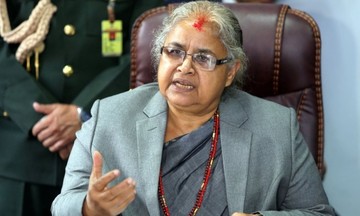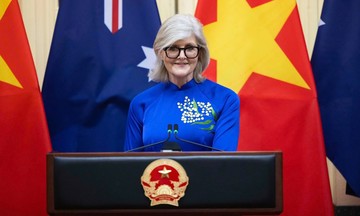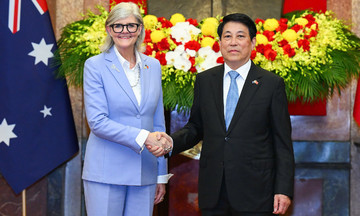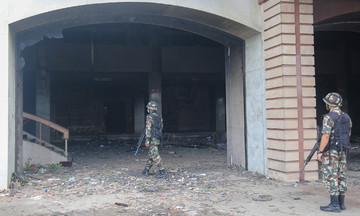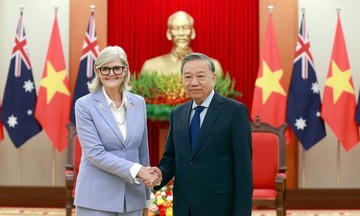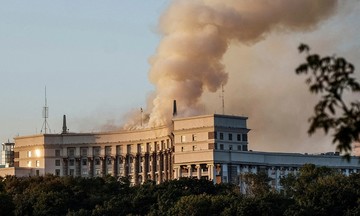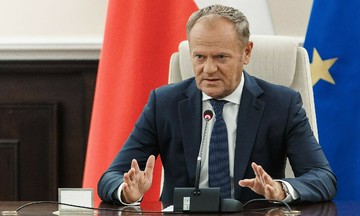Thousands of people across France took to the streets on 10/9 in protests under the banner "Block Everything" to express their discontent with President Emmanuel Macron's administration, proposed government budget cuts, and the entire political establishment.
In Lyon, protesters blocked a road and set fire to garbage bins. In Nantes, police used tear gas to disperse crowds.
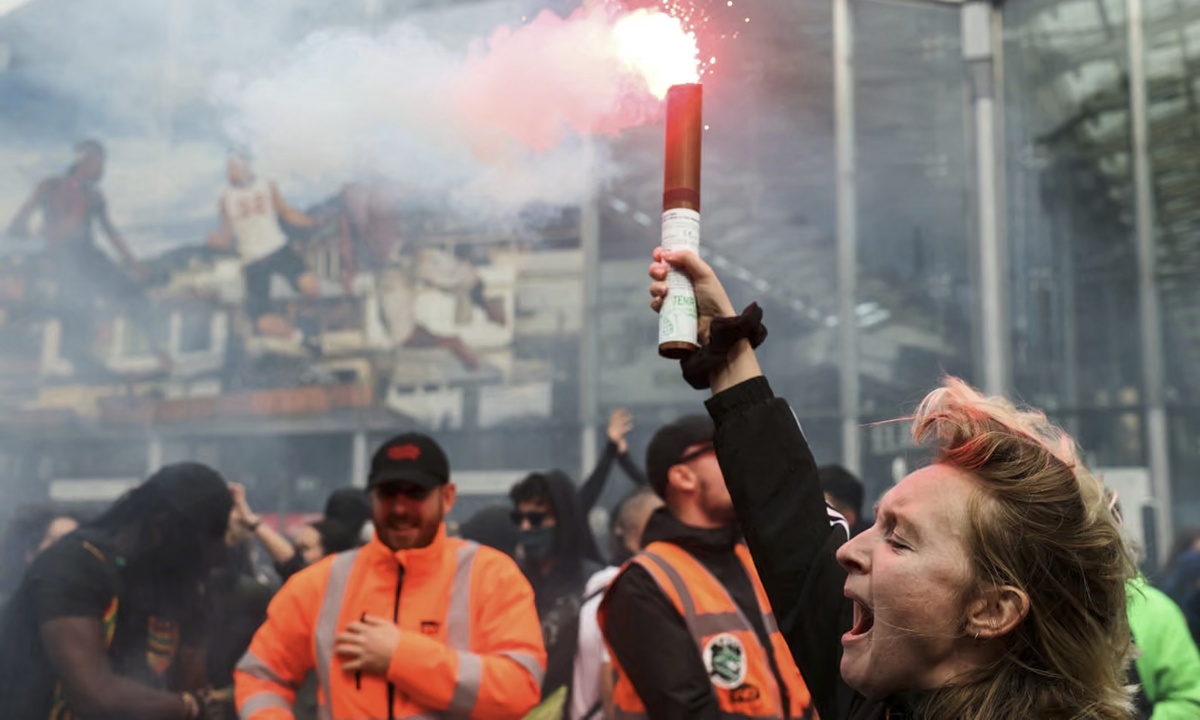 |
Protesters hold flares and chant slogans in front of the Gare du Nord train station in Paris on 10/9. Photo: AFP |
Protesters hold flares and chant slogans in front of the Gare du Nord train station in Paris on 10/9. Photo: AFP
In Marseille, police prevented about 200 protesters from blocking a main road. In Montpellier, police clashed with protesters who erected barricades at a roundabout, disrupting traffic. Protesters carried banners demanding Macron's resignation.
In Paris, police reported 132 arrests. Protest groups repeatedly attempted to block the Paris ring road during the morning rush hour, erecting barricades, throwing objects at police, and disrupting traffic, according to the Associated Press (AP).
About 1,000 people "tried to enter" the Gare du Nord train station but were stopped by riot police, Paris officials told France24.
Police prevent protesters from gathering near the Gare du Nord train station in Paris on 10/9. Video: AFP
Christophe Lalande, a teacher protesting in Paris, said he opposed the budget cuts proposed by former Prime Minister Francois Bayrou, who was ousted earlier in the week. "Bayrou has been ousted, now his policies must be scrapped," Lalande said, calling for more funding for schools and hospitals.
"Today's protests send a message to all the workers of this country: we will not surrender, the fight continues," said Amar Lagha, a union member, at another protest. "This is also a message to the government that we will not back down, and if we have to die, we will die standing tall."
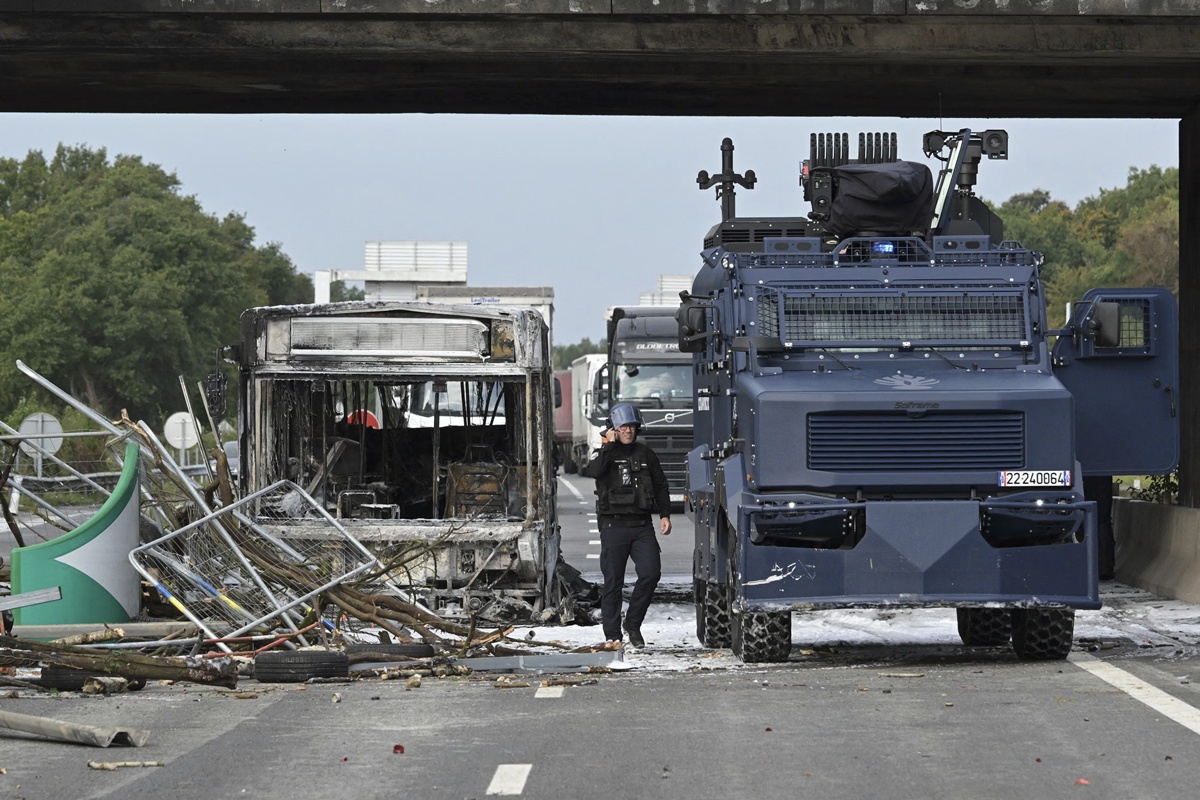 |
A bus is set on fire by protesters on the southern ring road in Rennes on 10/9. Photo: AFP |
A bus is set on fire by protesters on the southern ring road in Rennes on 10/9. Photo: AFP
While high-speed trains and most of the Paris metro system operated normally, rail services and some flights were disrupted, including at the capital's main airport.
Around 80,000 police officers were deployed nationwide to deal with the protests. Interior Minister Bruno Retailleau warned of "zero tolerance" for any violence.
The "Block Everything" movement emerged in May among right-wing groups but has since been embraced by left-wing and far-left groups. The movement has no centralized leadership and is organized spontaneously through calls on social media. It is reminiscent of the 2018 "Yellow Vest" anti-government protests, which posed a major challenge to Macron during his thu nhat term.
The protests are also seen as an early test for new Prime Minister Sebastien Lecornu, who took office that day. He is a close ally of Macron and has served as France's Minister of Defense for the past three years.
Florent, a protester in Lyon, said Macron's decision to appoint a close ally as prime minister was a "slap in the face" to the public. "We need change," he said.
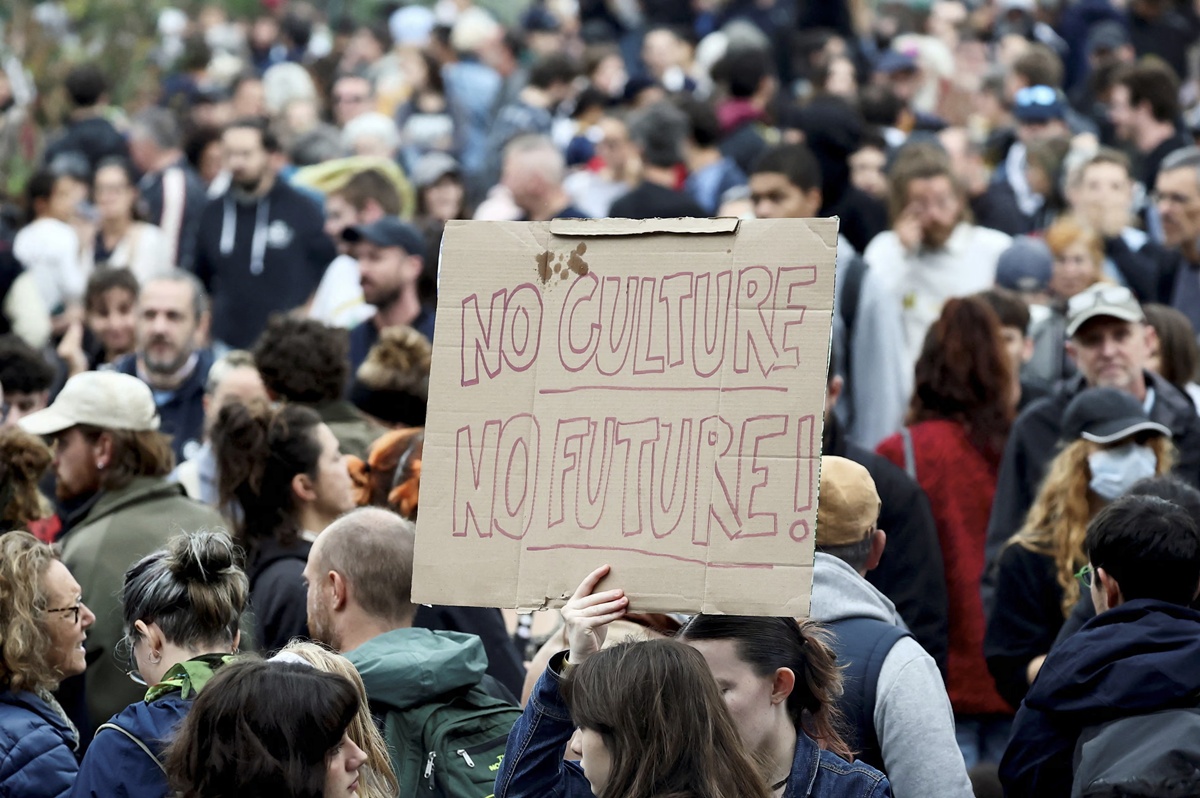 |
Protesters in Nantes on 10/9. Photo: Reuters |
Protesters in Nantes on 10/9. Photo: Reuters
Macron appointed Lecornu as Prime Minister on 9/9, a day after Bayrou lost a no-confidence vote in parliament over his austerity measures to reduce national debt.
Lecornu's challenge will be to present a 2026 budget plan without suffering the same fate as Bayrou, who lasted only 9 months in office.
In a message on X, Lecornu said his government would work to "maintain political and institutional stability to unite the country."
Bayrou had argued that 52 billion USD in spending cuts were needed to address France's debt and stabilize public finances. However, opponents accused him of trying to achieve this by cutting benefits for workers and retirees while protecting the wealthy.
Vu Hoang (AFP, Guardian, Reuters)




